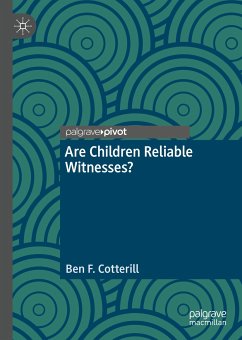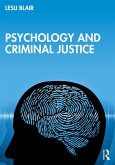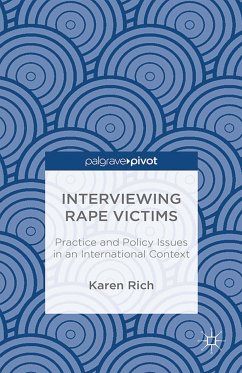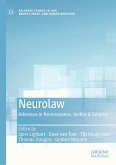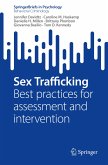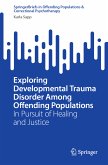-Dr Mark Blades, Senior Lecturer in Developmental Psychology, University of Sheffield, UK
"There is a nice coverage of how well children can serve as witnesses to a crime ... I am recommending this book as a valuable resource for academics and students in psychology, criminology, and law because there isn't another in the market that fully captures children's experience ... Not only is it good for academics, but a great resource for social workers, forensic investigators and practitioners working within the Youthand Criminal Justice."
-Dr Tochukwu Onwuegbusi, Lecturer in Psychology, University of Lincoln, UK
This book explores practices and influences that can increase or decrease the accuracy of children's testimonies. If a child falls victim to a crime, or becomes witness to it, they may well be questioned by the police. Perhaps even tasked with selecting a suspect from a line-up. But how reliable can a child be under such strenuous circumstances? Memory mechanisms and general developmental factors behind the capability of child witnesses are outlined, demonstrating their ability to describe or identify. Factors that affect jurors' perception of said children are also looked into in detail. There have been many instances in which poor interviewing practices with children led to false imprisonments. Said occurrences demonstrate how both situational factors and individual differences can potentially compromise children's eyewitness performance. Based upon whatwe now understand, can recommendations be made, so that, in a court of law, innocence is the key to achieving justice?
Ben F. Cotterill is lecturer in psychology at Clemson University in South Carolina, USA. He completed his doctoral dissertation on how children's temperament relates to their eyewitness performance. Dr. Cotterill's research interests include personality development, the reliability and credibility of eyewitness testimony, and testing police procedures used with children.
Dieser Download kann aus rechtlichen Gründen nur mit Rechnungsadresse in A, B, BG, CY, CZ, D, DK, EW, E, FIN, F, GR, HR, H, IRL, I, LT, L, LR, M, NL, PL, P, R, S, SLO, SK ausgeliefert werden.

